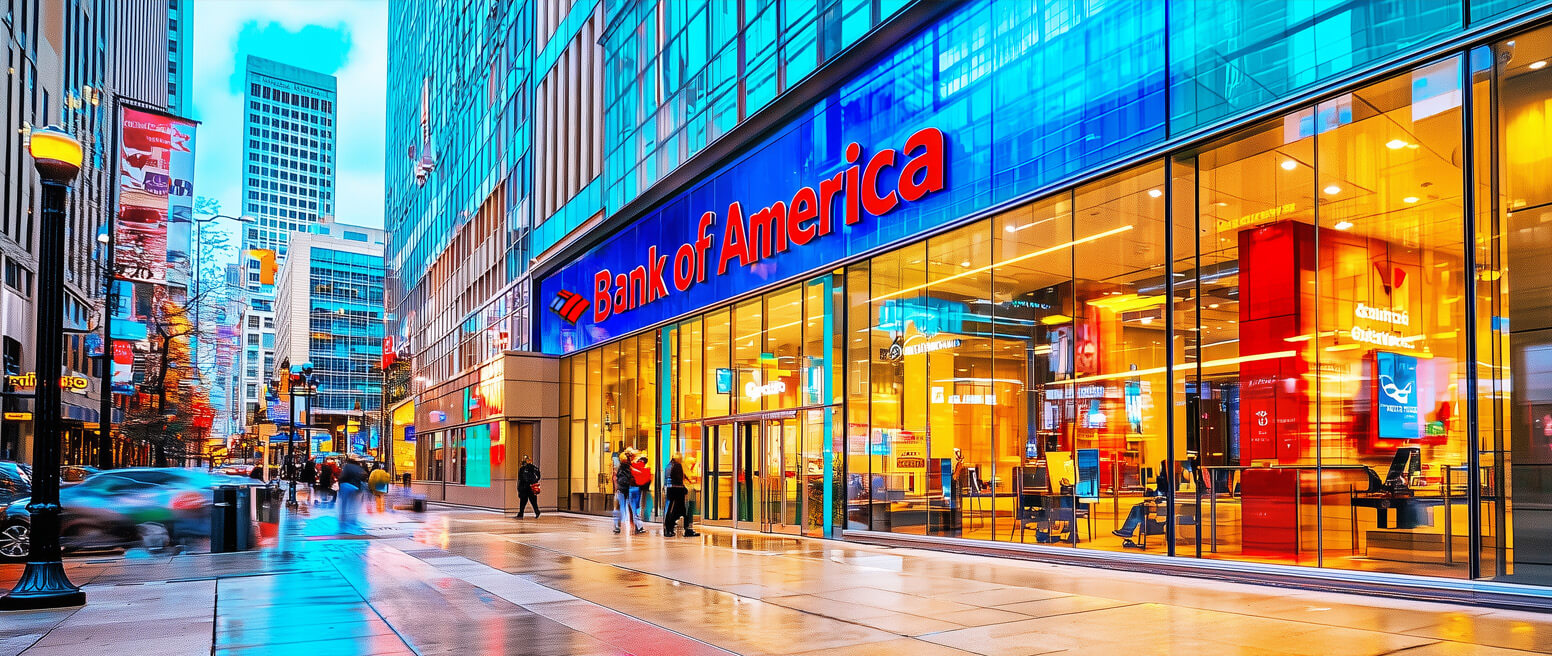What are the Rules for a Bank of America Dispute? We’ve Got the Answers.
As one of the largest financial institutions in the United States, Bank of America provides services to approximately 67 million consumer and small business clients around the country. They’re a generally trusted household name in banking and finance.
But, what if there’s a problem with a transaction involving a BoA card?
How does Bank of America handle disputes between consumers and merchants? What can each party expect from the process? Let’s go over it together.
Recommended reading
- Wells Fargo Disputes: Chargeback Rules & Things to Know
- What is the Zelle Dispute Process? What Should Victims Do?
- Venmo Chargebacks: How Do Disputes Work on Venmo?
- How Square Disputes Work | Rules, Protections & More
- Dropshipping Chargebacks | Causes & Tips to Prevent Them
- Types of Chargebacks | Common Claims & Why They Happen
What is a Bank of America Dispute?
A dispute happens when a bank customer challenges a recent charge on their statement. The buyer might claim the transaction was unauthorized, or that there was some other issue with the purchase.
The bank will investigate the matter to determine if the customer’s concerns are valid, and whether or not the merchant is at fault. If so, the bank will approve a chargeback against the merchant.
Learn more about chargebacksYou could consider a Bank of America dispute the preliminary stage before a chargeback is filed against a merchant. After investigating the matter, BoA will decide whether the customer’s claim is valid, and either reject the claim, or initiate a Bank of America chargeback.
At this stage, the customer will be issued a provisional refund for the original transaction amount. The merchant will have the funds removed from their business account, and will be assessed additional chargeback fees by their own bank.
Valid Reasons to Dispute a BoA Charge
Cardholders can dispute a charge if that charge was unauthorized (i.e. fraud), or if the merchant made a mistake, like charging the wrong amount or failing to ship the goods purchased.
When a Bank of America customer decides to dispute a charge, they’re essentially saying one of two things:
The transaction was fraudulent and was not authorized by the cardholder.
The merchant failed to uphold their end of the transaction and deliver what was promised.
If you’re a cardholder, and are looking to initiate a BoA dispute, you want to start by ensuring that you have a valid reason to dispute a credit card charge. So, let’s break down the two categories outlined above:
Cardholders are expected to have tried to contact the merchant about the issue before their bank or credit card network will approve a dispute on their behalf. Bank of America may approve a dispute without a cardholder having contacted the merchant first, but only in circumstances of clear and deliberate fraud. Otherwise, evidence of attempted contact may be required to proceed.
Invalid Reasons for a BoA Dispute
Cardholders are not allowed to dispute payments because they forgot about them, thought that a dispute would be easier than a refund, or ended up regretting a purchase. All of these would be considered examples of first-party misuse of the chargeback process.
Of course, not all Bank of America dispute requests are valid.
The law allows consumers to dispute charges when the merchant has made a legitimate error or has failed to uphold their end of a transaction. However, items that a buyer decides they don’t like, or which they no longer need, are not eligible for those protections.
If a cardholder requests a chargeback, but has no valid reason to do so, they're technically engaging in first-party fraud. This could carry consequences for the cardholder, depending on the circumstances.
Examples of invalid chargeback reasons include:
- Not recognizing the merchant’s billing descriptor.
- Forgetting about a recurring payment.
- Being impatient for a refund.
- Not understanding the difference between disputes and refunds.
- Forgetting about a purchase.
- Not wanting to go through customer service for a valid return.
- Waiting too long to return the item within the merchant’s return policy.
- Someone in your household made a purchase on your account.
- Filing a dispute because it seems easier or more convenient than a refund.
Customers should take note that Bank of America has begun to crack down on acts of repeated merchant abuse, like in the above situations. They’re starting to impose heavier consequences for this behavior, such as:
- Loss of any refunds or disputed funds.
- Fees and penalties if disputes are “won” by merchants after investigation.
- Loss of standing with banks or card networks.
- Accounts might be forcibly closed.
- Damage to one’s credit score.
- Those who engage in long-term, deliberate abuse can even be prosecuted.

How Does the Bank of America Dispute Process Work for Cardholders?
If a cardholder suspects their information was stolen, they should report the issue through Bank of America’s customer privacy and security portal immediately. For all other disputes, cardholders can file directly on the Bank of America website or through the app.
Filing a BoA Dispute
The Bank of America dispute process starts when a cardholder contacts the bank to file a chargeback. Cardholders should be aware that they can only file chargebacks against processed transactions. Complaints about pending charges should be settled directly with the merchant.
Bank of America issues both Visa and Mastercard branded cards, so exact time limits may vary depending on the relevant network’s chargeback reason code. In general, however, the bank states that “most transactions must be disputed within 60 days of the date of [the] statement on which the error appeared.”
The bank encourages cardholders to work with merchants before initiating disputes; doing so can save time and money, since merchant-initiated reversals are faster and easier to process than chargebacks.
Disputes can be filed from the bank’s mobile app, through online banking or by calling the bank’s customer service phone number available online.
From the Bank of America Mobile App:
- Log in to the app using your account information.
- Select the account with the transaction you'd like to dispute.
- View your recent transactions and tap the specific transaction to select it.
- Tap “Dispute Transaction” and follow the instructions on screen.
From a Desktop Computer:
- Log in to Online Banking.
- Select the account with the transaction you'd like to dispute.
- View your recent transactions and click the specific transaction to select it.
- Click the “Dispute this transaction” link and follow the instructions on screen.
Checking the Status of a BoA Dispute
Once a claim has been submitted, customers can view the status of their Bank of America dispute in the online banking message center, inquire via phone, or elect to receive correspondence by mail. They can also check the status of a claim in the mobile app or on your computer.
Bank of America claims will be viewable on the bank’s site and app for up to 120 days from the date the claim file is moved from active to closed status.
From the Bank of America Mobile App:
- Log in to the app.
- Select the Menu icon, then tap on View My Claim in the Help & Support section.
From a Desktop Computer:
- Log in to the online banking message center.
- Click on the Claims Messages section; the status of the dispute can be found in the Current Status column.
How Long Does it Take for BoA Cardholders to Get Their Money Bank?
In most cases, the bank will issue the cardholder a provisional credit within 1-3 business days. The cardholder can use this credit immediately, and unless the merchant submits a response to the dispute, this credit will be made permanent.
For a debit card, the bank may issue a provisional credit. This is a temporary credit to the account, and will be removed once the funds from the original transaction are returned to the account in question.
For a credit card, the bank may adjust the customer’s outstanding balance. They’ll also recalculate minimum payments based on the total balance of the account balance, minus any transaction in dispute. If the dispute is filed in error, BoA will typically correct the account within 1-3 business days.
If the customer is set up for AutoPay, or has a scheduled payment in 3 or more days, the bank will review whether the scheduled amount needs to be adjusted in light of the new balance. If so, the bank will reduce the scheduled payment amount to prevent the account holder from paying the disputed amount.
Customers can find more information about their dispute progress via the BoA Online Banking Message Center. If the bank requires additional information to process the dispute, cardholders can respond to message requests directly through the above link. Please note that message requests must be answered within 12 business days.
How Does the Bank of America Dispute Process Work for Merchants?
This can be discussed from two perspectives. First, a merchant that receives a chargeback from a Bank of America cardholder, but who uses a different acquiring bank. Second, we have merchants who use Bank of America as their acquiring bank.
Cardholder is a BoA Customer, but Merchant is Not
Bank of America will issue the cardholder a provisional refund once the dispute is filed. They’ll send information about the dispute to the merchant’s acquirer, along with a chargeback reason code.
The merchant can respond by either accepting the chargeback or challenging it through the representment process. In the latter case, the merchant can submit delivery confirmation letters, purchase receipts, and other forms of evidence to the acquiring bank. The acquirer will review the evidence and then submit it to Bank of America.
No more than 2 MB of files can be uploaded when responding to Visa disputes; Mastercard allows up to 10 MB worth of uploads.
At this stage, Bank of America can either rule in favor of the merchant or cardholder. In case new evidence is uncovered against the merchant, the case may move to the pre-arbitration stage. Chargebacks that are not resolved at this stage may proceed to arbitration.
Merchant is a BoA Customer
In the second scenario, a merchant will receive an email notification once an issuer initiates a chargeback. Merchants who have a Merchant Services Account open at Bank of America can view and respond to disputed transactions by logging into online banking on a desktop computer.
From a Desktop Computer:
- Access your Merchant Service Account by logging into the Business Advantage 360 online banking platform.
- Click on Dispute Management. A list of disputes will pop up.
- When responding to disputes, upload evidence as prompted, using a supported file type (typically .jpeg or .pdf files).
Does Bank of America Charge a Dispute Fee?
Bank of America cardholders aren’t charged fees when they file disputes. However, the merchant's acquiring bank will charge the merchant a fee.
Merchants who bank with Bank of America are assessed chargeback fees ranging from $25 to $50 every time they lose a dispute. The exact amount varies depending on the seller’s merchant category code, or MCC, and is provided in every merchant agreement.
Even if a merchant does manage to win their representment case and convince the bank that the customer was in error, the chargeback fees they were charged won’t be refunded. This means merchants get stuck with those fees whether they were in the wrong… or not.
How Merchants Can Prevent BoA Disputes
As mentioned above, merchants have the right to fight illegitimate chargebacks through the representment process. Also, before this stage, Bank of America offers several dispute resolution options on their website to resolve transaction disputes before they reach the chargeback stage.
Stopping chargebacks before they’re filed is always the best approach. To that end, here are a few other tips that can help merchants resolve disputes before they become chargebacks:
- Obtain proper authorizations for all card transactions, including any necessary signatures, PINs, address verification, or CVV codes.
- Ensure all transactions are approved (not declined) by the issuing bank.
- Verify that the cardholder was advised of the purchase details and given the option to confirm or cancel at the time of the transaction.
- Wait to process transactions until the merchandise is shipped or delivered.
- Ensure all transactions are processed accurately with the proper transaction code and in a timely manner.
- Make sure your registered business name on the payment system matches (or is at least identifiably similar to) the one on the cardholder’s statement.
- Obtain the customer or other designated person’s signature for proof of delivery when merchandise is delivered.
- For subscriptions, obtain customer acknowledgment and agreement to recurring transactions, and provide notice to the cardholder prior to each charge.
According to the 2022 Chargeback Field Report, up to 64% of all chargebacks are the result of friendly fraud. This occurs when a buyer disputes a charge without a valid reason to do so, often weeks or even months after a transaction has been approved. How can merchants fight back without further impacting their bottom line?
Merchants Can Fight Invalid Bank of America Chargebacks
Because friendly fraud is post-transactional, opportunities to prevent it are limited. That isn’t to say that merchants can’t or shouldn’t fight back against bad dispute claims, though.
Merchants can fight back against illegitimate Bank of America chargebacks through the representment process mentioned above. During this process, merchants literally “re-present” the transaction to the bank to explain its legitimacy. To do so effectively, they must present the bank with compelling evidence to prove the cardholder disputed the transaction in error. If the merchant’s representment package is compelling enough to refute the consumer’s dispute, BoA may return the original fund to their merchant account.
Learn more about representmentCombatting chargebacks is a costly and time-consuming process. If you’re feeling overwhelmed, don’t worry: we can help.
Chargebacks911® is an industry leader in chargeback prevention and dispute management. If your business is on the receiving end of chargebacks, call us today for your free ROI analysis.
FAQs
How does Bank of America handle chargebacks?
Once a cardholder files a chargeback claim, Bank of America’s fraud team will investigate the transaction and notify the merchant. In the meantime, the customer will be issued a provisional credit against the transaction under dispute. Clients can reference their Bank of America debit or credit card agreement for specific details regarding the chargeback process.
How long does a chargeback take Bank of America?
Cardholders have up to 120 days following the date of the transaction to file a chargeback. Once a dispute is filed, Bank of America can take up to 45 days to investigate and resolve the chargeback.
Why did Bank of America do a return item chargeback?
Bank of America charges account holders a return item chargeback fee when they deposit a bad check that subsequently bounces.
Does Bank of America give money back if scammed?
Customers who make purchases using a Bank of America-issued debit or credit card are protected by the bank’s $0 Liability Guarantee, regardless of whether the transaction involved an authorized or unauthorized purchase.
Who usually wins chargebacks?
Cardholders win chargebacks far more often than merchants do. Roughly three out of every four disputes are won by cardholders.
Who loses money in a chargeback?
Merchants ultimately lose money when chargebacks are filed. This is because merchants who experience disputes suffer from lost revenue, lost merchandise, and chargeback fees.















